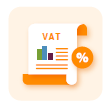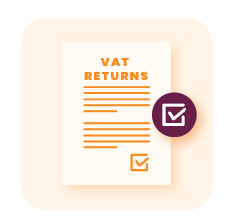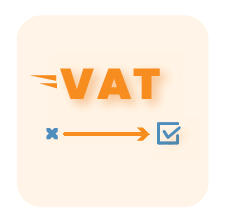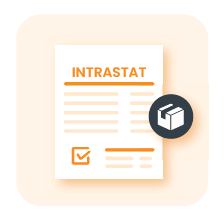Bulgaria – Intrastat & ESL
Intrastat is a system used within the European Union (EU) to gather data and produce statistics on the trade of goods between EU member states, otherwise known as intra-community trade. It was established when customs checks between EU countries were abolished, leading to a need for a new method to gather trade statistics.
Under Intrastat, companies above a certain threshold must provide details about goods they send to or receive from other EU member states. The information typically required includes the type and quantity of goods, their value, and the countries of dispatch and arrival.
Learn more about Intrastat & ESL in Bulgaria in our comprehensive guide below.
Selling in Bulgaria?
Special Thresholds
Bulgaria applies unique Intrastat thresholds. When these thresholds are exceeded, more detailed Intrastat reporting becomes necessary. As of January 1, 2021, the specific thresholds for inbound and outbound trade were 7.3 million levs and 14.7 million levs per annum, respectively.
Intrastat declarations might be demanded yearly or on a more frequent basis. The annual requirement for Intrastat declarations comes into play when the previous year’s total volume of intra-Community goods trade for a specific flow exceeds the applicable threshold. In this scenario, monthly reports should be filed for the entire year, from January through December, with data for January included in the initial Intrastat report due between February 1 and February 14.
In contrast, the current reporting obligation comes into effect when the total volumes from the start of the calendar year up to any given month exceed the declaration threshold for that year. From the month the threshold is surpassed until the end of the year, reports must be submitted. The report for the initial reference period should be submitted by the 20th day of the month following that period. For subsequent reference periods until the end of the year, the deadline is the 14th day of the month after the relevant period.
Sales and Purchase Ledgers
In Bulgaria, sales and purchase ledgers corresponding to the specific reporting period are mandatory attachments to VAT returns. Every VAT-liable individual must maintain detailed sales and purchase ledgers, which comprehensively outline the tax documents such as invoices and protocols that have been issued and received.
The sales ledger must encapsulate information regarding the tax documents that were issued by the supplier or on the supplier’s behalf. It should also summarize information for those supplies where the supplier wasn’t mandated to provide invoices.
Conversely, the purchase ledger should document information on tax documents received by the supplier for goods and services procured. These details should be recorded in the purchase ledger no later than 12 months subsequent to the tax period during which the documents were issued.
Last Updated: 19/10/2023
Disclaimer
The information provided by Global VAT Compliance B.V. on this webpage is intended for general informational purposes only. Global VAT Compliance B.V. is not responsible for the accuracy of the information on these pages, and cannot be held liable for claims or losses deriving from the use of this information. If you wish to receive VAT related information please contact our experts at support@gvc.tax
ESL in Bulgaria
According to Article 125 of Bulgaria’s VAT Law, when a Bulgarian-registered supplier undertakes the following actions during a given tax period, they must submit the VAT Information Exchange System (VIES) declaration alongside their VAT return. In several EU Member States, the VIES declaration is also known as an EC Sales List (ESL).
These actions are the following:
- Carrying out intra-Community transactions.
- Acting as an intermediary in a triangular transaction.
- Providing services executed in a different EU Member State.
- Shifting call-off stock from Bulgaria to another EU country.
Article 7 of the Bulgarian VAT Law states that to benefit from a zero rate on intra-Community dispatches, taxpayers must adhere to the VIES declaration’s reporting guidelines.








